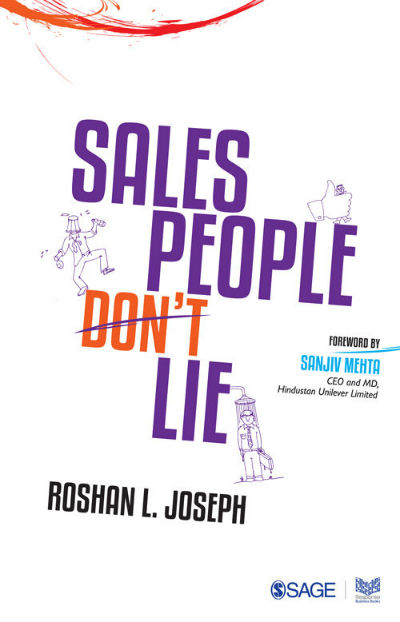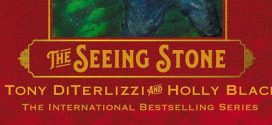Some professions require real hard work from the people doing them but are often not recognized for the same. Salespeople are one such “species”! They have targets to meet and no excuses (not even genuine ones) are entertained(!) by their superiors! In broad aspects, almost the entire world is a market and people are trying to sale one thing or the other to the others!
This Is Here In For You
Listen To The Podcast:
If you love to listen to the book review over reading, or if you want to go through it while doing other activity, here is our Podcast of this review article. Do listen, and share your thoughts with us.
Spotify:
YouTube:
Well, rather than going philosophical let us take a realistic view of the world.
Trade is possibly the next thing most humans do after survival actions. And, the roots of the same are found in the cave ages. The barter system was supposedly the initiation of the business. Throughout our lives, we tend to buy and sell various products and services (and if you look at the reality, it all starts before the birth of a person and even continues in after death rituals and even after that!). So, why we see some people are shying away from the words “Business” or “Sale”? And why there is a common perception that “Salespeople lie”!
Do you think there can be an entire book written on the same? Well, Roshan L. Joseph came up with a book named Salespeople Don’t Lie in the same arena.
| Book Title | : | Salespeople Don't Lie |
| Author | : | Roshan L. Joseph |
| Published by | : | SAGE Publications Pvt. Ltd ( 5 June 2018) |
| # of Pages | : | 204 (Paperback) 204; 2932KB (Kindle EBook) |
| # of Chapters | : | 49 |
| Purchase Link(s) | : |
Do you believe in the saying “Don’t judge a book by its cover”? Well, we at ThinkerViews believe in it. But, at the same time, we consider the book cover an important aspect of the book. And, we do recognize the impact of a book cover in positive or negative actions for purchasing and/or reading (or not) a specific book. We cannot deny the influence of the book cover.
Book Cover:
So, let us take a look at the cover page of Salespeople Don’t Lie.

Salespeople Don’t Lie by Roshan L. Joseph | Book Cover
The cover page uses the minimalistic approach. The designer make sure that the book look simple yet effective at first glance. As book tends to elaborate arguments from both of the sides (people who believe that salespeople lie to match their targets and those who believe they don’t); the title of the book has the word “Don’t” is written as Don’t. A very intelligent and thoughtful attribute.
As the cover has a pure white background, the text in red, purple, black and blue stands out. It is not fancy or super attractive, but decently readable. The humourous illustrations on the cover page try successfully to balance the dry and heavy topic. So a reader can expect the content not to be very academic or less interesting.
Well, the cover page seems to do what is expected from it quite successfully, but does the book pass the litmus test? Let’s check it.
First of all, let us make it very clear that our culture has never considered “wealth” or genuine means to earn the same, bad, ever. While “Arth” aka “Artha” (अर्थ) is considered as one of the most import aspects of life, Lakshmi (लक्ष्मी) worshipped as the wealth Godess (not a grammatical mistake, but Bhartiya scriptures don’t discriminate between male and female God) and Kuber (कुबेर) as caretaker or wealth; how can we consider the wealth – an evil?
The means to earn the same, however, can be evil.
The book starts with a consolidated preface, written by Sanjiv Mehta (CEO and MD of Hindustan Unilever Limited). And, I will suggest you read it. Usually, we often skip reading forewords, afterwords, preface, acknowledgments, bibliography etc.
The most perfect way to win an argument (or prove your point) is to start advocating the extreme opposite to the same; and the author does it brilliantly here. It all starts with the definition of salespeople. Proceeding forward comes some interesting lines elaborating the job profile of salespeople.
… when selling was essential an art practiced by a salesperson to forge relationships with customers and communicate how his product met an unmet need of consumers and was better than his competitors.
While you pay attention to the simple yet effective language used in the book, you will also notice the illustrations by Ajoy Joseph. They are interesting and effective. A thumbs up for the same.
The author takes you to the historical times and explains the possible situations when the requirement of salespeople was first required. The incident of a girl making a specific item quite differently, how eventually the item was loved by consumers, how her life moves ahead etc. will make you think reading a fictional story rather than a dull book talking about commerce!
The author used simple language to explain the basic principles of commerce. Eg:
One thing is clear, you need the salesperson only if you have excess stock, after the current demand has been met. It was the Industrial Revolution that really gave an impetus to the growth of the ubiquitous salesperson. Until the advent of factories, the pressure was on making more. Demand was assured. People fought to be the first to buy before it ran out.
Here is one more example:
Whenever a product is in short supply, the manufacturer becomes king and the customer is treated extremely poorly.
And, the author, doesn’t stick to just old or medieval times and examples. He cannot. To talk something from a modern perspective, for the people living now, the content should also be updated, right? The author, thus, includes some stuff that the readers will be able to connect easily.
With advent of big data and analytics and the increasing use of artificial intelligence, selling will become more of a science than an art. However, in business, as in life, it is not about “either or”.
—-
In the era or Amazon and others, is there any chance to develop the relationship side of personal selling? Or is the day of the sales team over? In this age of literature in 140 digits, does anyone care to read more, shake a hand or simply drop in to have a cup of coffee (no business, please!)? Or is 10,000 years of a good thing too much to endure anymore?
The author doesn’t shy away in talking about the points which most of us think of. Be it about salespeople getting international holidays paid by the company, doctors and other professionals receiving free product samples and commission, some salespeople enjoying movies and chit chats with friends and filling-in the timesheet by mentioning they are on the official visit, and so on. Here are some such lines from the book:
There are holiday tours to international locations for the doctors and their families. How objective or impartial can a doctor be after such a holiday to prescribe without an ulterior motive?
— — — — — — — — — — — —
Even after reaching the upcountry markets, there are many options to being at work. Many steal way, after lunch, to their hotel rooms for a cosy siesta or a matinee in a remote cinema hall, who is to know?
The author pinpoints toward answers also
Product innovation plays a very important part in the health industry. … When product innovation is poor, the gifting to doctors increases so as to compensate. … Very few pharmaceutical companies look beyond the doctor and at the patient.
The book also tries to explore the effect of the lifestyle of a salesperson on his family and social connects. Which is otherwise found rarely talked about. Here is an example form the book:
There were times when a salesperson set out on a tour that could last 45 days. One can hardly imagine what stress this causes to both the family and the individual.
The book also talks about the way the salespeople are often making settlements with distributors and dealers, even up to running a scam, to eventually prove their worth and importance to the company they are associated with. And, it is no hidden truth. A large number of such examples and scams come out at regular intervals.
The word “professional” is loosly used today. Everyone claims to be one, little understanding the obligations of such a tag.
— — — — — — — — — — — —
… the creativity is expected to extend to where truth abides.
— — — — — — — — — — — —
When the scam is public, they take the moral high ground and punish those who get caught, at times even having them sacked.
Truly, the sins of seniors are atoned for by the juniors.
The book talks about some realities of society in a matter-of-factly manner.
Social customs have a true assessment of how a person is valued in the society.
The book also conveys some business wisdom lessons as well:
Keep bad news for the morning light and the rising sun. It beams hope.
We see salespeople as target hungry, determined to sell the product/service at any cost, be it an inhuman way. Well, it is true in some cases, of course. But, is it true in all the cases? The author tries talking about all the notions we have about the salespeople and the perception for them. In short, he tries to get answers for:
What makes selling such a toxic profession? Why is that the customer is often viewed as the enemy, rather than the competition?
I will also suggest you read carefully the segment talking about the principles of Professional selling.
So does the book end blaming and proving that the “salespeople lie”? Well, the last line of the book has the answer.
I have tried keeping spoilers at the bay, as much as possible, but as you know some of them are unavoidable. Anyway, the quotes mentioned above must have given you a fair idea about the literary qualities and linguistics used in the book.
The author has done a good research work (well, his experience in the field must be counted as the same) and provided it in the form of simple words.
The book has its target readership. Actually, anyone can read it. But, mostly, people associated with the marketing aspects will go for it.
Summary:
A nicely written, well researched, easy to read, filled with logical arguments and reasoning, added with references where needed book where some incidents and stories are weaved to make it a light read. The target readers will find it worth reading. But, it will not appeal to readers who don’t belong to the trade sector.
Around 7.5 out of 10 for the target readers.
Quick Purchase Links:
- Buy - Salespeople Don't Lie by Roshan L. Joseph - Paperback - Amazon IN
- Buy - Salespeople Don't Lie by Roshan L. Joseph - Kindle EBook - Amazon IN
- Buy - Salespeople Don't Lie by Roshan L. Joseph - Paperback - Amazon US
- Buy - Salespeople Don't Lie by Roshan L. Joseph - Kindle EBook - Amazon US
Over To You:
If you already have read the book do share your remarks and thoughts via comments below. Does this review help you in making your decision to buy or read the book? Do not forget to share this article with your friends over various social networks. Please follow/subscribe us on various Social networks like Twitter, Facebook, YouTube, Spotify, Amazon Prime Music, Audible, and others. And yes, you may like to subscribe to our RSS feeds to get latest updates for the site to land right in your mail box.
 ThinkerViews – Views And Reviews Personal views and reviews for books, magazines, tv serials, movies, websites, technical stuff and more.
ThinkerViews – Views And Reviews Personal views and reviews for books, magazines, tv serials, movies, websites, technical stuff and more.



